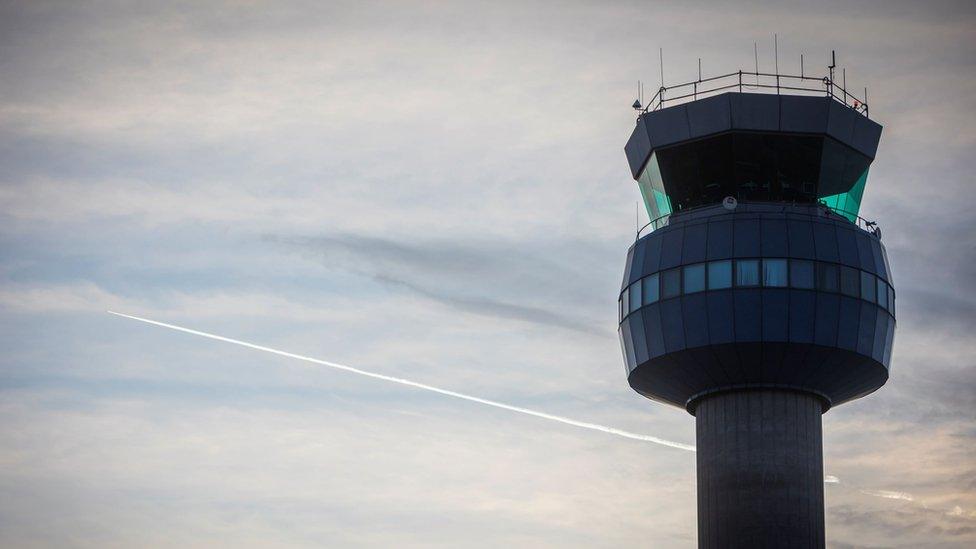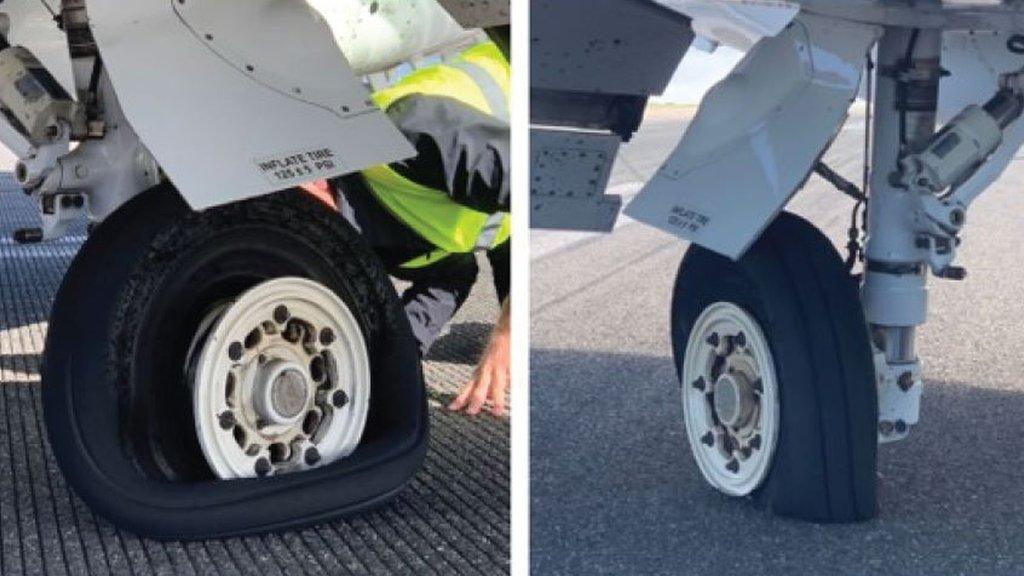Defect forced cargo plane to divert from East Midlands Airport
- Published

The plane was coming to land at East Midlands Airport when it encountered electrical issues, the AAIB said
A wiring defect caused an electrical malfunction and forced a plane to reroute its landing, a report found.
The cargo vehicle was approaching East Midlands Airport when a co-pilot lost their displays and it "triggered a number of warnings and cautions".
An Air Accidents Investigation Branch (AAIB) report said the plane diverted to Birmingham International Airport.
The defect was "probably caused by incorrect use of mechanical wire stripping tools".
In its report, the AAIB said the equipment manufacturer and a "third-party maintenance organisation" had worked to "promote the use of alternative tooling to prevent a reoccurrence".
'Multiple warnings'
The report said a two-man crew reported for duty at East Midlands Airport at 23:20 GMT on 17 January 2023 for a flight to Belfast, with a technical log showing one "acceptable deferred defect".
After being de-iced the plane departed at 00:30 and landed at 01:50, having flown "without incident", before it began a routine turnaround and left Belfast at 03:10.
The flight was "uneventful" and forecasted freezing fog meant the crew were expecting a delay on approaching East Midlands.
As the craft approached landing it suffered "a significant loss of flight instrumentation and multiple visual and audible alerts including ground proximity warnings".
When the crew suffered communication problems they then "requested radar vectors for a diversion to Birmingham", after which it suffered "additional electrical failures", with one hydraulic system for the landing gears "unpowered" and needing help to lower them.
The crew "managed the diversion effectively", the report said, and the plane landed "without further incident" before it was "taken out of service for detailed troubleshooting".
The AAIB said the starter generator's manufacturer "had previously identified the risk of mechanical damage from mechanical insulation stripping tools", but had not specified in documents its preference to use thermal wire strippers instead.
It said its flight data review "provided no indication as to why the speed sensor wire failed when it did", adding: "It has not been possible to fully explain the behaviour of some of the flight instruments that was observed by the crew and that of other aircraft systems."

Follow BBC Leicester on Facebook, external, on X, external, or on Instagram, external. Send your story ideas to eastmidsnews@bbc.co.uk, external or via WhatsApp, external on 0808 100 2210.
Related topics
- Published4 April 2024
